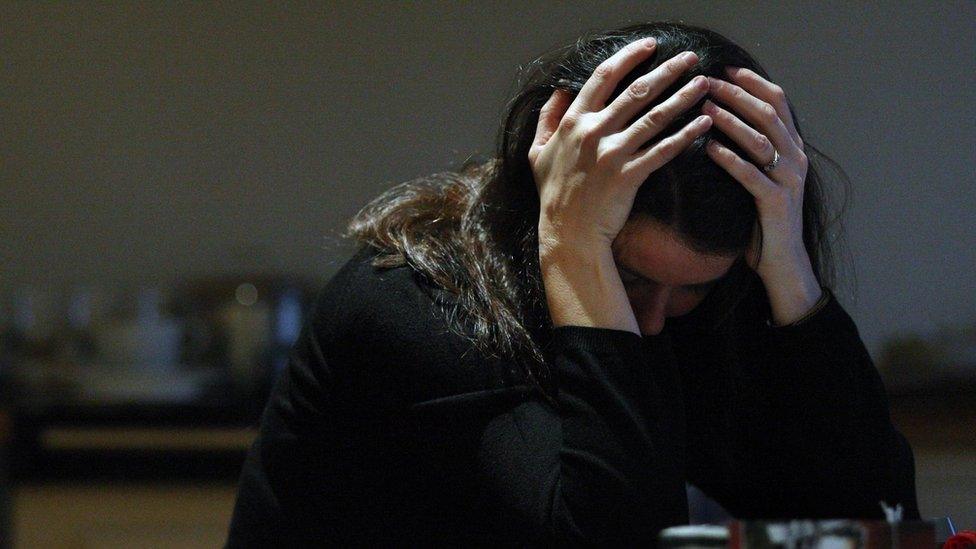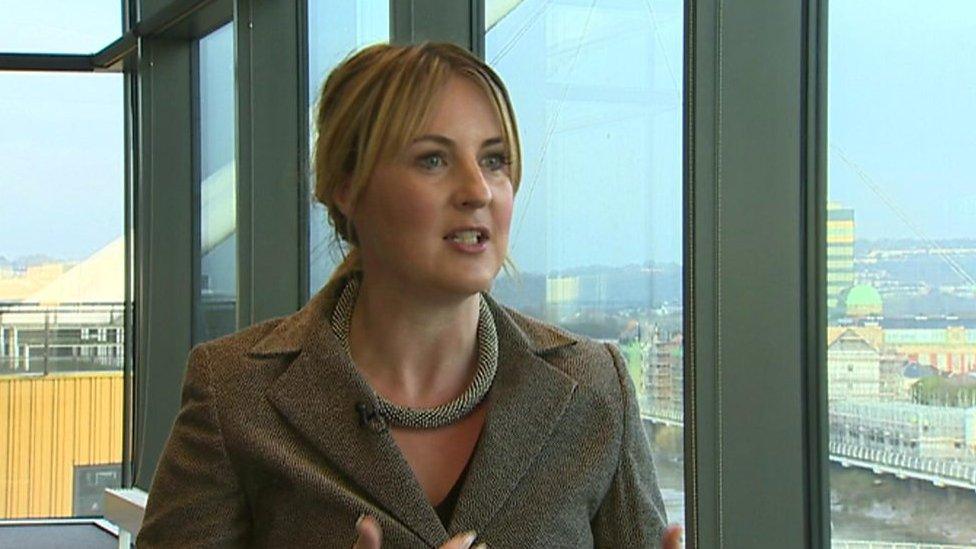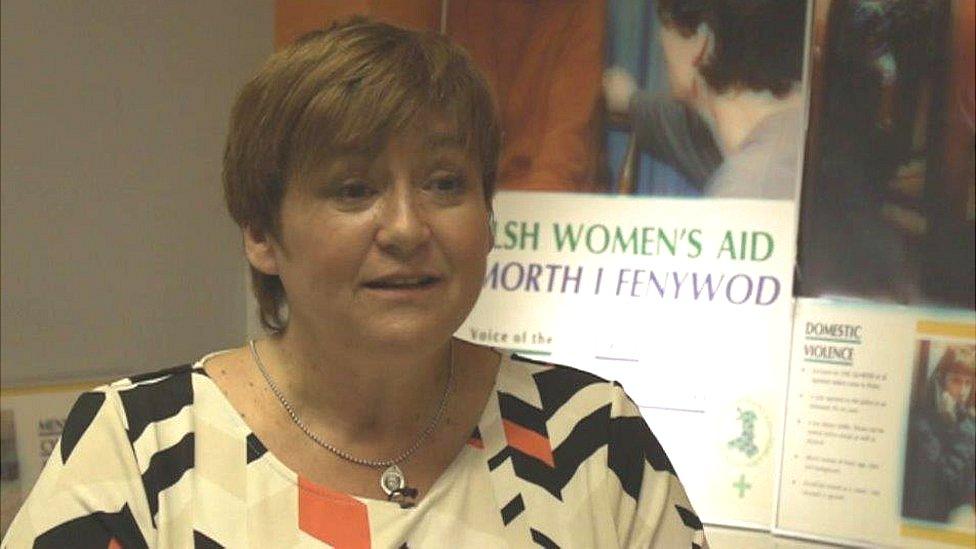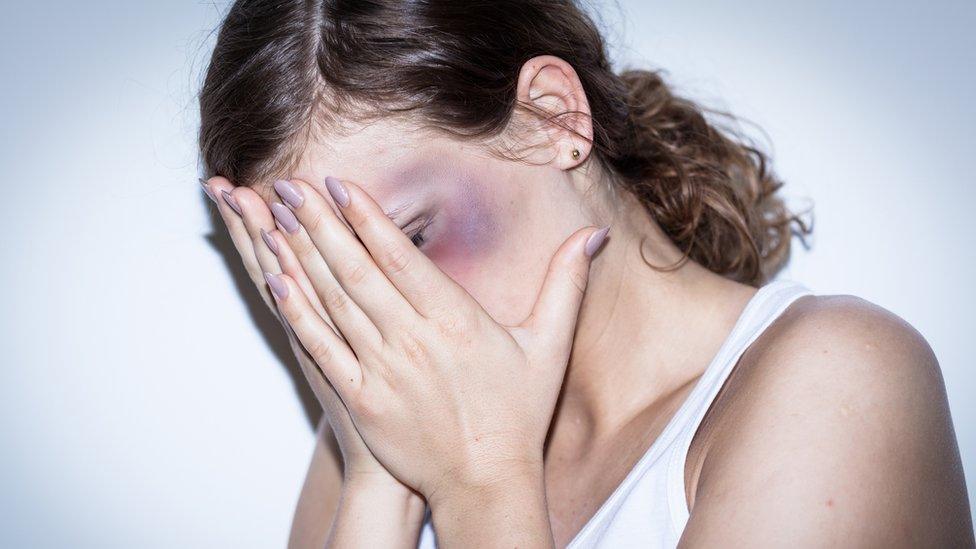Domestic abuse: Call for employers to give victims leave
- Published

Employers should be obliged by law to give staff suffering domestic abuse paid leave, the chief executive of Welsh Women's Aid has said.
Eleri Butler said it would indicate to survivors that they are not alone.
It comes after the head of a sustainability watchdog said she would provide leave to staff who suffer from such abuse.
Sophie Howe said the policy would allow victims to leave a "serious and frightening situation".
New Zealand passed legislation last year granting victims of domestic violence 10 days of paid leave. Similar measures have been made in the Philippines and parts of Canada.
Ms Butler, chief executive of Welsh Women's Aid, said: "It gives a message from employers that survivors of domestic abuse can access practical support, they are not alone going through their experiences.
"It helps survivors of domestic abuse make choices about accessing help and support, and what their options are."
'Visible issue'
She said flexible working arrangements can support victims who have to make appointments to see the police, a lawyer or access support such as counselling, "but it is really difficult to fit those kind of things around your working day".
She said it makes "good business sense" for employees to make it a visible issue and help survivors access time off.
The UK government has proposed a domestic violence bill - women's services have called for Westminster to legislate on employers being obligated to provide leave.
Employment rules in Wales are controlled from London, rather than Cardiff.

Sophie Howe says domestic abuse is "everyone's problem"
Sophie Howe, Future Generation's Commissioner, said domestic abuse was "everyone's problem".
Her organisation employs 22 full-time staff and and has 10 people seconded from other public bodies, and will offer affected staff 10 days paid leave.
"Many women stay in abusive relationships due to lack of money and access to secure accommodation for themselves and their children," Ms Howe said.
"It is very important to me that my staff are aware that they are not alone in dealing with a serious and frightening situation, and that there is crucial, practical support immediately available, in order to help leave an abusive relationship."
- Published5 March 2019

- Published25 November 2018

- Published23 November 2018
